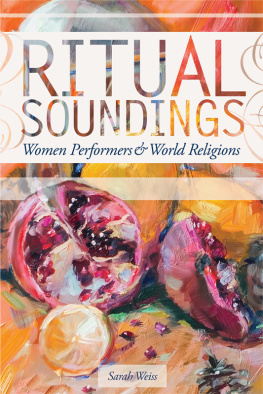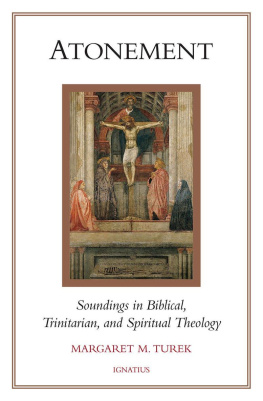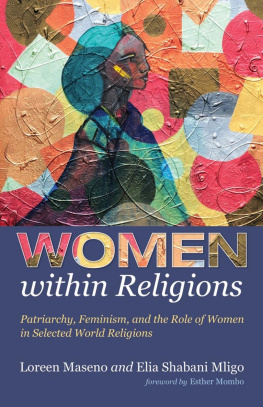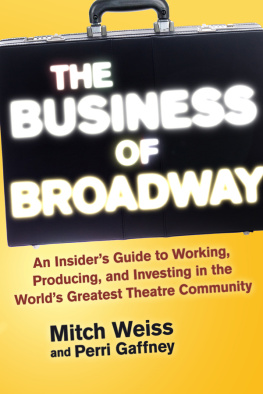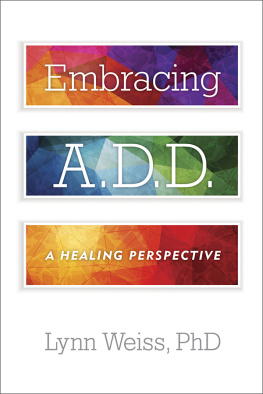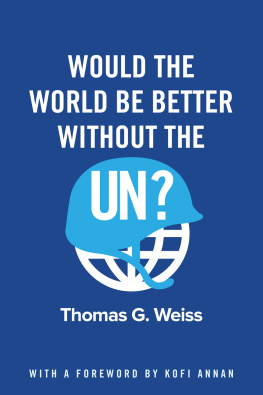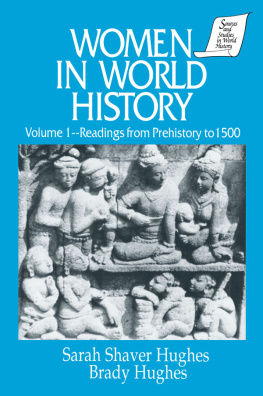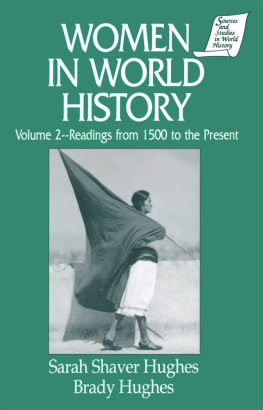Sarah Weiss - Ritual Soundings : Women Performers & World Religions
Here you can read online Sarah Weiss - Ritual Soundings : Women Performers & World Religions full text of the book (entire story) in english for free. Download pdf and epub, get meaning, cover and reviews about this ebook. year: 2019, publisher: University of Illinois Press, genre: Religion. Description of the work, (preface) as well as reviews are available. Best literature library LitArk.com created for fans of good reading and offers a wide selection of genres:
Romance novel
Science fiction
Adventure
Detective
Science
History
Home and family
Prose
Art
Politics
Computer
Non-fiction
Religion
Business
Children
Humor
Choose a favorite category and find really read worthwhile books. Enjoy immersion in the world of imagination, feel the emotions of the characters or learn something new for yourself, make an fascinating discovery.
- Book:Ritual Soundings : Women Performers & World Religions
- Author:
- Publisher:University of Illinois Press
- Genre:
- Year:2019
- Rating:5 / 5
- Favourites:Add to favourites
- Your mark:
- 100
- 1
- 2
- 3
- 4
- 5
Ritual Soundings : Women Performers & World Religions: summary, description and annotation
We offer to read an annotation, description, summary or preface (depends on what the author of the book "Ritual Soundings : Women Performers & World Religions" wrote himself). If you haven't found the necessary information about the book — write in the comments, we will try to find it.
Sarah Weiss: author's other books
Who wrote Ritual Soundings : Women Performers & World Religions? Find out the surname, the name of the author of the book and a list of all author's works by series.
Ritual Soundings : Women Performers & World Religions — read online for free the complete book (whole text) full work
Below is the text of the book, divided by pages. System saving the place of the last page read, allows you to conveniently read the book "Ritual Soundings : Women Performers & World Religions" online for free, without having to search again every time where you left off. Put a bookmark, and you can go to the page where you finished reading at any time.
Font size:
Interval:
Bookmark:

NEW PERSPECTIVES ON GENDER IN MUSIC
Editorial Advisors
Susan C. Cook
Beverley Diamond
A list of books in the series appears at the end of this book.
Women Performers and World Religions
SARAH WEISS

Publication of this book is supported by the Lloyd Hibberd Endowment of the American Musicological Society, funded in part by the National Endowment for the Humanities and the Andrew W. Mellon Foundation.
2019 by the Board of Trustees
of the University of Illinois
All rights reserved
Library of Congress Cataloging-in-Publication Data
Names: Weiss, Sarah, author.
Title: Ritual soundings : women performers and world religions / Sarah Weiss.
Description: Urbana : University of Illinois Press, [2019] | Series: New perspectives on gender in music | Includes bibliographical references and index.
Identifiers: LCCN 2018033007| ISBN 9780252042294 (cloth : alk. paper) | ISBN 9780252084089 (pbk. : alk. paper)
Subjects: LCSH : Women musicians. | Gender identity in music. | MusicReligious aspects. | Marriage customs and rites. | WomenSocial conditions.
Classification: LCC ML 82 . W 53 2019 | DDC 781.70082dc23 LC record available at https://lccn.loc.gov/2018033007
Ebook ISBN : 978-0-252-05113-5
Cover illustration: iStock.com/Koliadzynskalryna
For Tony
I wish to thank the readers for University of Illinois Press for their careful reading, the time they spent to understand the goals of my project, and the sage advice they provided.
I give my heartfelt thanks to the following research assistants for their help at different stages in the process of the development of this project: Micah Hendler, Estel Gomez, Lynda Paul, Lauren Holmes Frankel, Danielle Ward-Griffin, Rex Isenberg, Sarah Larsson, Ryan Harper, and Santana Haight. I thank the members of the Women, Religion, and Globalization Faculty Colloquium 20072009 at Yale University, most especially Melanie Boyd, Alicia Schmidt Camacho, Fatima Azzahrae Chaabani, Geetanjali Singh Chanda, Harlon Dalton, Paula Hyman, Marcia Inhorn, Alyssa Mt. Pleasant, Sally Promey, Harry Stout, Emilie Townes, and Laura Wexler. Thank you all for invaluable insight and critique at various moments during the years I have been working on this book. This project was generously supported with leave of one semester while I was teaching at Yale University and with six weeks leave while I was teaching at Yale-NUS College. The publication of this work has been generously supported by a subvention grant from the Lloyd Hibberd Endowment of the American Musicological Society, funded in part by the National Endowment for the Humanities and the Andrew W. Mellon Foundation.
I would like to thank the many scholars in different fields who provided their thoughts, comments, and critique, whether friendly or not, helpful or not. You all have had significant impact on the ways in which I have thought about various parts of this diverse project. I would especially like to recognize Inna Naroditskya, Kay Shelemay, Zoe Sherinian, Anne Rasmussen, Ellen Koskoff, Jeff Summit, Barney Bate, Katherine Hoffman, Loring Danforth, Tony Day, Gavin Flood, Henry Sam Chauncey Jr., Rona Johnston-Gordon, Martin Jean, Rainer Weiss, James Hepokoski, Milette Gaifman, Anne MacNeil, Gary Tomlinson, Michael Veal, Gail Holst-Warhaft, Margot Fassler, Michael Carroll, Gabriella Ilinitchi Currie, Lisa Knight, and Adrian Vickers, as well as Julianne Laut and Julie Gay at University of Illinois Press. I am grateful to all of you for your thoughts and guidance. I apologize in advance if I have not used your suggestions in the ways in which you had hoped. To Sam and Tony and Ben, thank you for moving around the world and supporting me unconditionally. I could never have finished this work without you. Finally, there is no way to thank Laurie Matheson, editor-in-chief of University of Illinois Press for her enormous wisdom and great patience. Any faults in this book remain entirely my own.
The ostensible richness of tradition is not a fixed set of gems, but a shifting
and open-ended source of possibilities.
Mary McClintock Fulkerson, Changing the Subject: Womens Discourses
and Feminist Theology
If we listened to the voices of Indian women, we would find alternative
conceptions of Indian civilization that are often startlingly different from
what we find in our classics.
K. Ramanujan, Talking to God in the Mother Tongue
No religion exists in a vacuum. On the contrary, every faith is rooted
in the soil in which it is planted. It is a fallacy to believe that people of
faith derive their values primarily from their Scriptures. The opposite is
true. People of faith insert their values into their Scriptures, reading them
through the lens of their own cultural, ethnic, nationalistic and even
political perspectives.
Reza Aslan, Bill Maher Isnt the Only One Who Misunderstands
Religion
The question is not what you look at, but what you see. It is only necessary
to behold the least fact or phenomenon, however familiar, from a point
a hairs breadth aside from our habitual path or routine, to be overcome,
enchanted by its beauty and significance.
Henry David Thoreau, Unpublished journal entryAugust 5, 1851
World religions and the communities that practice them mutually constitute one another. Individuals and groups in local circumstances interpret the universal aspects of their religions idiosyncratically, making them their own. These local
My study draws on the rich resources developed in all three of these disciplinesethnomusicology, gendered studies of religion and religious practice, and religious music studies. As such, it is a meta-ethnography, a form of comparison generated by the synthesis and reanalysis of interpretive ethnographic work. Comparison is a hermeneutic that reveals alternative narratives and generates new ways of understanding the data at hand. But comparison also involves risks. While I have read deeply into studies of Christianity, Islam, Hinduism, Judaism, Buddhism, gender studies in religion, ethnomusicological studies of religious contexts, and religious studies, I am certain that large gaps in my knowledge still remain. I am also certain that some individual scholars reading this book will find fault with the ways I have represented materials from their particular research worlds.
I am an ethnographer who has studied and become expert in several music cultures in Indonesia, part of the world where multiple world religions have taken root and maintained influence over cultural expression for centuries. Java and Bali are places where Hinduism, Buddhism, Islam, and Christianity have settled in various waves since the second century ce. These world religions have been localized over the centuries but still retain connections of varying sorts with the practice of the religions elsewhere around the world. In and out of the field I have always wondered about the role of these large world religions in shaping the ways in which Indonesians engage and understand their performance traditions. Musing about this question led to my imagining this project. Our training as ethnographers specialized in the culture and practices of people in particular locations does not ask us to think comparatively. Yet the religious-cultural contexts we study are not simply local, even as it is always individuals in particular locations who engage the ritual practices we observe and analyze.
Font size:
Interval:
Bookmark:
Similar books «Ritual Soundings : Women Performers & World Religions»
Look at similar books to Ritual Soundings : Women Performers & World Religions. We have selected literature similar in name and meaning in the hope of providing readers with more options to find new, interesting, not yet read works.
Discussion, reviews of the book Ritual Soundings : Women Performers & World Religions and just readers' own opinions. Leave your comments, write what you think about the work, its meaning or the main characters. Specify what exactly you liked and what you didn't like, and why you think so.

